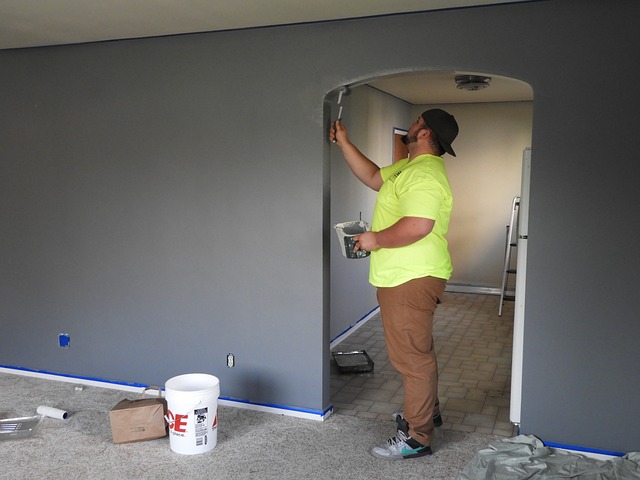This is a sponsored blog post. All opinions are my own.
Here’s Why You Can’t DIY Every Home Improvement Project

Ever tried walking through a Pittsburgh neighborhood and noticing how half the houses seem mid-project? With older homes, unpredictable weather, and a wave of remote workers turning their spaces into offices, kitchens, and everything in between, people are diving into renovations faster than ever. The problem is that not every project can—or should—be a do-it- yourself effort. In this blog, we will share why some upgrades are better left to professionals and how to know when to step back.
Knowing When Skills and Safety Collide
Some home projects tempt people into thinking they’re easy fixes because a few videos online make the process look simple. Swapping a faucet, patching drywall, or painting walls can be handled with patience and care. But projects that involve structural changes, electrical systems, or critical fixtures often carry risks that go beyond a messy finish. Mistakes in these areas can cause real hazards, from fire risks to compromised foundations, or they can trigger expensive repairs later.
Hiring professionals for specialized work saves more than time. Contractors bring training and the right tools, and they also understand local building codes and safety requirements, which helps avoid fines or failed inspections. Even energy-related upgrades, like replacing windows to improve heating and cooling efficiency, benefit from expert handling. When homeowners invest in something like Pittsburgh energy efficient windows, having experienced installers ensures they’re fitted correctly so drafts don’t undo the upgrade’s purpose. Professional work guarantees that the investment performs as intended, keeping energy costs lower and the house more comfortable, without the frustration of trial and error.
The broader market trends make professional help even more appealing. With inflation affecting materials and higher energy costs pushing people to prioritize efficiency, errors from inexperience can waste money quickly. Having skilled workers handle the job can keep those added costs from piling up and protect the home’s value long-term.
Why Some Savings Aren’t Worth the Risk
DIY often looks like a way to cut costs, but it can create bigger bills when the work isn’t up to standard. Many insurance companies refuse coverage for damage caused by unlicensed work, meaning a botched electrical job or plumbing mistake could leave a homeowner paying out of pocket. Even smaller projects can spiral if they uncover hidden issues like mold, asbestos, or outdated wiring, all of which require specialized handling.
The value of time also plays into the equation. Homeowners juggling full work schedules, kids, and day-to-day obligations often underestimate how long a project will take. A job that might take a crew two days can drag into weeks when done on weekends or late evenings, leaving parts of the home unusable and stress levels high. Paying for professional help isn’t just about the finished product but also about reclaiming time and avoiding drawn-out disruptions.
Contractors also help avoid missteps with permits and inspections, which can derail a project if overlooked. Cities and municipalities have tightened enforcement in recent years as more people take on renovations, and missing a permit can mean tearing down work or paying hefty fines. While some people see permits as just more paperwork, they serve as a safeguard, confirming that the work meets minimum standards that protect both the home and its occupants.
Understanding the Long-Term Payoff of Doing It Right
Some projects impact more than just the look or function of a home—they influence its efficiency, safety, and resale value. Upgrades like new roofing, HVAC installations, or structural changes don’t just need to work on day one; they need to hold up over years without creating hidden problems. Poorly done work can make selling a home harder because inspections often flag unpermitted or substandard projects, forcing sellers to fix or redo work at their own
expense.
Professional work also carries warranties and support that DIY jobs don’t. If a window leaks, a breaker keeps tripping, or a deck starts shifting, a licensed contractor can come back to address the issue. Homeowners who do the work themselves have to absorb those repairs, even when the problem stems from a minor oversight. This safety net often justifies the upfront cost, particularly for projects tied to essential systems.
In the context of broader economic shifts, these choices matter even more. With interest rates making new homes harder to afford, more people are investing in their current properties,aiming to make them last longer and work better for their needs. Spending strategically on professional help, especially for big-ticket items, protects these investments and avoids sinking money into fixes that won’t hold up.
Where DIY Still Fits Without Risking the Whole House
Not every project demands outside help. Painting, basic landscaping, small carpentry tasks, and aesthetic upgrades like shelving or cabinet hardware can be tackled safely with some preparation. These jobs offer the satisfaction of personal involvement without risking structural integrity or safety. They also keep costs down on parts of a renovation where mistakes are easily corrected.
The key is knowing the line between what can be handled personally and what crosses into skilled territory. When a job touches electrical wiring, load-bearing walls, plumbing systems, or anything that connects to the exterior shell of the home, it often moves into the realm where cutting corners can lead to more stress than savings. Recognizing this threshold early helps avoid starting a project only to realize halfway through that professional rescue is needed—usually at a higher cost than if they had been called from the start.
Ultimately, mixing DIY with professional work often yields the best results. Homeowners can handle smaller, manageable tasks themselves, while leaving critical systems, safety-sensitive elements, and major upgrades to licensed crews. This balance keeps budgets in check without risking the home’s integrity or long-term value.
Tackling home projects in Pittsburgh can be rewarding, but not every task fits into the DIY column. Knowing when to bring in professionals prevents safety risks, keeps costs under control, and protects the value of the home for years to come. The appeal of saving money or learning a skill fades quickly when mistakes lead to bigger bills and lost time. Choosing the right approach for each project helps ensure the upgrades deliver comfort, efficiency, and peace of
mind without becoming sources of regret.

Hi there! I am Emily Evert, the owner of Emily Reviews. I am 28 and live in a small town in Michigan with my boyfriend Ryan and our two pugs. I have a large family and I adore my nieces and nephews. I love reading memoirs, and learning about child development and psychology. I love watching The Game of Thrones, Teen Mom, Sister Wives and Veep. I like listening to Jason Isbell, John Prine, and other alt-country or Americana music. I created Emily Reviews as a creative outlet to share my life and the products that I love with others.
This post currently has no responses.















Leave a Reply